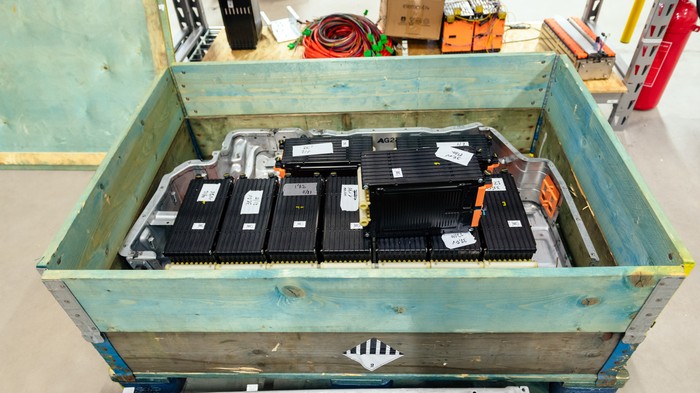......
Today's Electric Car Batteries Will Be Tomorrow's E-Waste Crisis, Scientists Warn
Electric vehicles can help save the planet, but their batteries pose a serious challenge to the world's recycling infrastructure. We need to improve and scale up recycling methods now, scientists say in a new paper.

V batteries at a recycling facility in Sweden. Image: Mikael Sjoberg/Bloomberg via Getty Images
Electric vehicles will play a crucial role in humanity’s fossil fuel-free future, but no technology comes without cost. The lithium-ion batteries that EVs run on are made from metals that are mined at a serious environmental and human toll, and from supplies that won’t last forever. When those batteries die, they’re liable to join the tens of millions of tons of spent electronics piling up as e-waste in landfills around the world.
That’s why we badly need to develop better methods for recycling EV batteries and start scaling up the recycling infrastructure now, a team led by researchers at the University of Birmingham in the UK argue in a review paper published today in Nature.
As the paper notes, the one million EVs sold around the world in 2017 will eventually result in 250,000 tons of battery pack waste that the world’s recycling infrastructure is ill-equipped to handle. And while EV batteries can last for up to 20 years, the potential battery waste in the pipeline as EV sales grow year over year is enormous.
“It is important that we anticipate problems before they happen,” said lead study author Gavin Harper, a research fellow at the University of Birmingham’s Faraday Institution. “We have seen in the past with car tires and fridges how waste mountains can arise if we don’t anticipate waste management problems.”
Continua:






